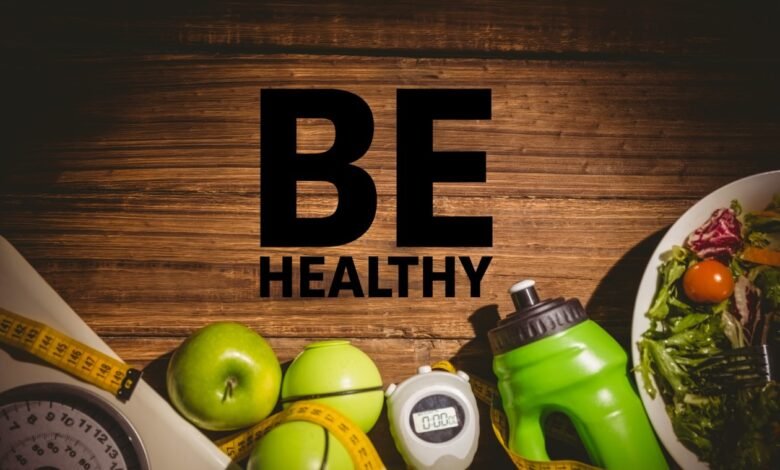5 Astonishing Facts About Diet and Nutrition You Need to Know Now

In today’s fast-paced world, understanding the intricacies of diet and nutrition is more important than ever. Diet and nutrition play a pivotal role in shaping our health and well-being, and being informed about these aspects is crucial for making informed choices. To help you on this journey, we’ve compiled five astonishing facts about diet and nutrition that you need to know right now.
First and foremost, it’s essential to recognize that diet and nutrition are not just about shedding a few pounds or achieving a certain physique. They are the cornerstones of our overall health, affecting everything from our energy levels and immune system to our mood and longevity. As we delve into these fascinating facts, you’ll gain valuable insights into how the food you eat impacts your body and mind, enabling you to make healthier choices and lead a more fulfilling life. So, let’s embark on this enlightening journey into the world of diet and nutrition.
Read More: Maximize Your Potential with Powerful Diet & Nutrition in 2023
The Power of Whole Foods
Whole Foods Are Nutritional Powerhouses
Whole foods are nutritional powerhouses that offer a remarkable array of health benefits. These unprocessed, natural foods encompass a wide range of options, from vibrant fruits and vegetables to nourishing whole grains, lean proteins, and wholesome nuts. What sets whole foods apart is their rich composition of essential nutrients, including vitamins, minerals, fiber, and antioxidants. Unlike their processed counterparts, which often contain added sugars, unhealthy fats, and artificial additives, whole foods provide a well-rounded package of goodness that supports various aspects of our well-being. Incorporating a variety of whole foods into your diet can help you optimize your nutritional intake and pave the way for a healthier lifestyle.
The Impact of Sugar on Health
The sweet temptation of sugary treats is hard to resist, but the impact of excessive sugar consumption on our health is too significant to ignore. Numerous studies have linked high sugar intake to obesity, type 2 diabetes, and heart disease. The American Heart Association recommends limiting added sugars to protect our heart health. It’s not just about the obvious sources of sugar like candies and sodas; hidden sugars lurk in seemingly innocent products like flavored yogurt and condiments. Reading food labels and being mindful of added sugars is an important step in making informed dietary choices.
The Role of Macronutrients
Balancing Macronutrients for Optimal Health
Macronutrients, which include carbohydrates, proteins, and fats, are the building blocks of our diet. Each macronutrient serves a unique purpose in our bodies, and achieving the right balance is essential for maintaining energy levels, supporting metabolism, and promoting muscle growth and repair. Carbohydrates are our primary source of energy, while proteins are essential for building and repairing tissues. Healthy fats, often found in avocados, nuts, and olive oil, play a crucial role in heart health, brain function, and reducing inflammation. Striking the right balance among these macronutrients is key to overall well-being.
The Truth About Fats
Fats are a fundamental component of our diet, and understanding their diverse effects on our health is crucial for making informed dietary choices. Contrary to the misconception that all fats are harmful, there’s a significant distinction between healthy fats and their less beneficial counterparts. By delving into the intricacies of fats, we can uncover their impact on our well-being and learn how to integrate them wisely into our meals. From the virtues of heart-protecting unsaturated fats to the potential risks posed by saturated and trans fats, this exploration reveals the nuanced truth about fats and empowers us to foster a balanced and nourishing diet.
The Importance of Micronutrients
Micronutrients for Wellness
Micronutrients play a pivotal role in promoting wellness and ensuring our bodies function at their best. These essential nutrients, encompassing vitamins and minerals, might be required in smaller amounts, but their impact is profound. Vitamins such as A, C, D, E, and K, along with an array of minerals like iron, calcium, and zinc, are the building blocks that support various bodily functions. From boosting our immune system to aiding in energy production and maintaining bone health, micronutrients are the unsung heroes that contribute to our overall vitality. Ensuring a well-rounded and diverse diet filled with micronutrient-rich foods is key to unlocking their full potential and enjoying a life of enhanced well-being.
Read More: Simplifying Health And Wellness: 9 Easy Steps for Everyone
Conclusion
In conclusion, diet and nutrition are fundamental aspects of our lives that significantly impact our health and well-being. As we’ve explored these five astonishing facts and answered some common questions, it’s clear that making informed choices about what we eat is vital.
Remember, a balanced diet isn’t about deprivation; it’s about nourishing your body with the right nutrients while still enjoying the foods you love in moderation. Be cautious of dieting myths, and always seek professional advice when in doubt. Supplements can be helpful, but they should always supplement a wholesome diet.
Maintaining a healthy diet is not only achievable but also essential for a long and vibrant life. By embracing these facts and making mindful dietary choices, you can take significant steps towards improving your overall health and enjoying the benefits of a well-nourished body and mind.
FAQs
What is the importance of a balanced diet?
A balanced diet is crucial because it provides your body with essential nutrients, vitamins, and minerals needed for optimal health and function. It supports your energy levels, immune system, and overall well-being.
How can I improve my diet without giving up my favorite foods?
You can improve your diet by incorporating healthier alternatives and practicing moderation. Gradually introduce more fruits, vegetables, whole grains, and lean proteins into your meals while still enjoying your favorite treats occasionally.
What are some common myths about dieting that I should be aware of?
Common dieting myths include the idea that all fats are bad, that skipping meals helps with weight loss, and that extreme diets are effective. It’s important to be informed and consult with a nutritionist to debunk these myths.
Are supplements necessary for a healthy diet?
Supplements can be beneficial if you have specific nutrient deficiencies, but they should not replace a well-balanced diet. Whole foods are the best source of essential nutrients, and supplements should complement your diet when needed.
How can I maintain a healthy diet while on a budget?
Eating healthily on a budget is possible by planning meals, buying in bulk, choosing seasonal produce, and avoiding processed foods. You can also explore local farmer’s markets and compare prices to make cost-effective choices.







